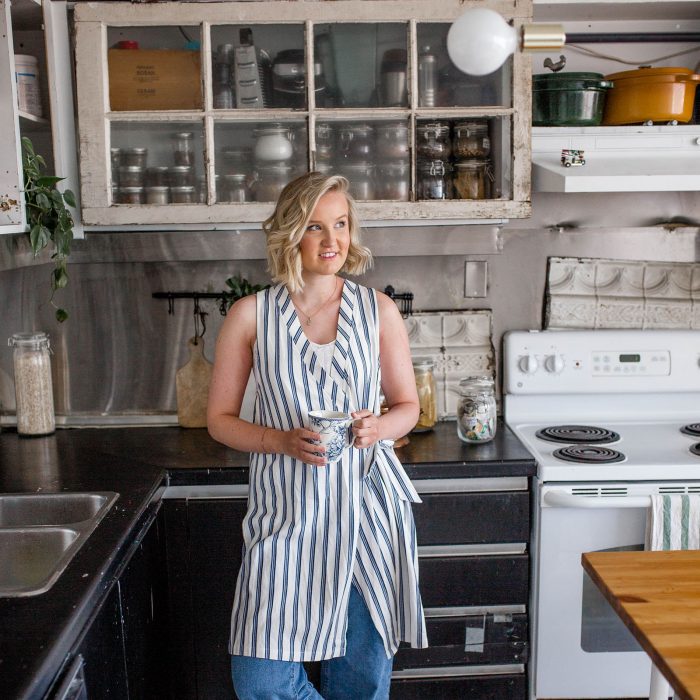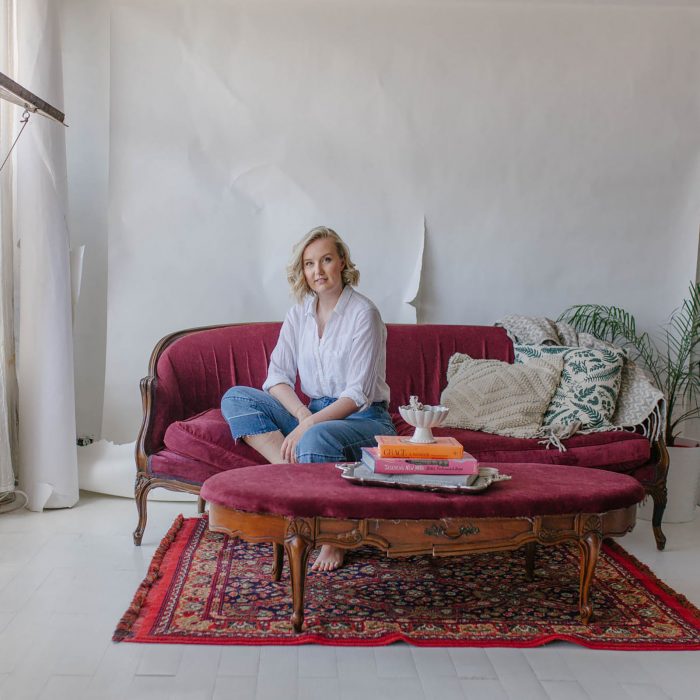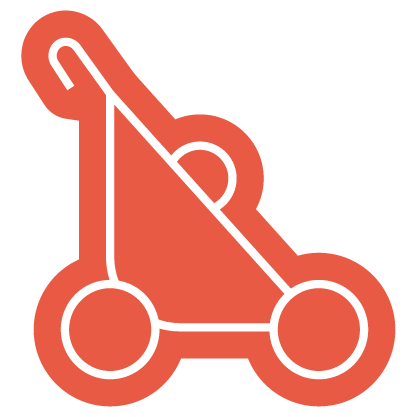Rhiannon is a doula, maternal support practitioner & fertility coach based in Toronto, Canada. She draws from a wide range of educational approaches to provide clients with emotional and practical guidance through their transition to parenthood. My career began working internationally with different non-profits, trying to find myself and make a difference along the way. While working on a maternal mental health series with the BBC, my eyes were opened to how hard moms really have it. I was livid as I read through story after story, hearing how all these people went through birth trauma or medical mistreatment or had no support after leaving the hospital. This was something that I needed to change. In our society, we’re expected to do it all and bounce back from pregnancy like it was nothing. We’re expected to be perfect caregivers on no sleep, host our friends and family as they come over to greet our newborn, and get our bodies back to normal in no time. It’s no wonder we see so many new parents suffering from the baby blues, and postpartum mood and anxiety disorders, as we expect moms to do it all, and do it alone. The number #1 recommendation I can make is to ask and get help. Whether it’s your friends, family, or a trained professional like a postpartum doula, lactation consultant, or even an in-house chef to meal prep for you a few times a week – lose the expectation that it’s healthy to do it all, and let yourself get some help. In life, we want to plan for everything and be as prepared as we can. But with childbirth and parenting, sometimes you have to surrender those expectations and let life happen. When it comes to labor, I help my clients feel empowered not by having the most specific plans written out, but learning about all the potential outcomes, so that no matter what happens, they feel empowered and informed rather than out of control. As a doula,I don’t think of myself as a care provider from a specific school of thought, like a chiropractor or acupuncturist, but rather, a bank with a wide range of resources. No matter what my clients feel drawn to support their transition to parenthood, I’m able to provide my knowledge base to guide them along the parenting journey that’s right for them. Whether studying Bioethics at Columbia or postpartum nutrition from Ayurvedic coaches, I feel drawn to helping my clients design a holistic life that is nourishing and rewarding, rather than viewing parenthood as a place of hustle and drain. First off, the term “birth plan” is canceled in my book. No matter how much positive manifestation and prenatal prep you do, life just happens. Your tiny human is its own person with their own plans on how to enter the world. You can’t plan what’s going to happen, but you can be informed and explain your preferences. That’s why I work with my clients to design a Birth Vision Board, rather than a birth plan. Spending the time to think about your birth vision and putting your thoughts on paper will get you to educate yourself around the choices you DO have during your birth, and to let your support system & care providers know what you need in order to feel supported and taken care of. Creating a personal birth vision board will prepare you for your birth, allowing you to become familiar with the good, bad, and the ugly of all the options available to you, and help you create the best possible birth experience for you and your little one – no matter what happens. Basically, a doula is like a BFF / life coach / wise sage / maid of honour for all things birth & postpartum. They support and empower you to make the best choices for you and your family, and leave the medical side of things to the folks wearing scrubs. As a maternity care specialist, I’m a trained doula in all aspects of the journey to parenthood, starting from fertility all the way to the first year after baby. Similarly to the way a birth doula provides non-biased emotional, physical and informational support to pregnant people, a fertility doula does the same for those trying to conceive. I act as a sounding board, confidante, patient advocate, and holistic lifestyle consultant, educating my clients on the full spectrum of options within the conception process and how to optimize their physical well-being in preparation for pregnancy. Education Is The Best Tool For Your Transition To Parenthood

What inspired you to venture into this field and what keeps you passionate about your line of work?
Since then I’ve devoted my life to helping parents take back their power. I studied Bioethics at Columbia University, focusing on birth justice and human rights for parents in the medical system. Afterward, I launched my company Birth Boss Maternity Care to bring judgment-free care to parents who just need a little support. 
What do you think our society lacks for new parents? How do you recommend filling that void?
It’s no wonder we see so many new parents suffering from the baby blues, and postpartum mood and anxiety disorders, as we expect moms to do it all, and do it alone. The number #1 recommendation I can make is to ask and get help. 
What are the most common concerns or issues your clients experience during their transition to parenthood? How do you help them combat those challenges?

You have—and continue to expand upon—an impressive range of qualifications ranging from bioethics to Ayurvedic nutrition to crystal healing. How do these different approaches enhance the parenting journey?
As a doula,I don’t think of myself as a care provider from a specific school of thought, like a chiropractor or acupuncturist, but rather, a bank with a wide range of resources. 
Rigid birth plans can quickly be derailed by circumstances outside of the parents’ control. How do you help parents plan their births and prepare for the unexpected? What advice do you give every parent before they give birth?

What are some helpful tips for mothers and their partners to practice during labor and birth?
In labor, fear and stress create a physiological response in our bodies called the “fight or flight” response, causing your body to shut down and focus on escaping danger rather than focusing on relaxing the muscles needed to deliver a baby, which causes even more pain and more fear. That’s why its so crucial you create a safe, nurturing space for laboring. Whether you’re in a hospital, birth center, or at home, make the space feel comfortable with things like fairy lights or battery operated candles, soothing scents, and a chilled-out playlist. These are all things you can prep in advance, or get your partner to organize.
When it comes to actual labor time, the number one tip I suggest is moving around every 20 minutes if possible, to get the blood flowing and the baby dropping. Use Pinterest or go to a birth class, or ask your doula, to go through all the different positions and switch it up as frequently as possible.
That’s why its so crucial you create a safe, nurturing space for laboring. Whether you’re in a hospital, birth center, or at home, make the space feel comfortable with things like fairy lights or battery operated candles, soothing scents, and a chilled-out playlist. These are all things you can prep in advance, or get your partner to organize. 
For many people, postpartum support is heavily dependent on access to family and friends. For people without that network nearby, what are some practices that can help to ease the transition into parenthood?
Know that while you can do this alone, it’s going to be really difficult to recover in an efficient way unless you’re rested and looked after. Look at your daily responsibilities pre-pregnancy, like walking the dog or buying groceries, and see what you can outsource for at least the first 4 weeks after pregnancy. If you have the resources, look at bringing a postpartum doula on to your team who can offer their referral network as well as make your day-to-day life as a new parent a little bit easier.

That’s why I encourage my clients to make a postpartum plan, just as most people would make a birth plan.
What exactly does a doula do and how does having a doula present during the birth help?

For many people, getting pregnant is a challenge. How do you support clients embarking on fertility procedures?
I hope this year ahead brings me more of doing what I love – working with families on their biggest journey yet!
In 2019, Birth Boss has some super exciting brand partnerships coming up, offering some really neat products for parents & parents-to-be. I hope this year ahead brings me more of doing what I love – working with families on their biggest journey yet! For as long as I can remember, I’ve always been a hardcore girl power advocate, so I can’t wait to be a part of a community that supports empowered parents in a totally real way. What’s next for BirthBoss?
What are you most excited to find in the bellybrief community?
 beta
beta beta
beta

